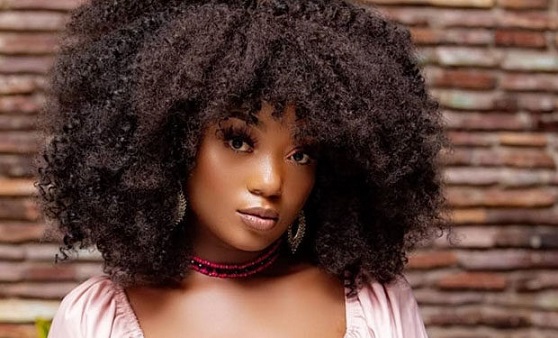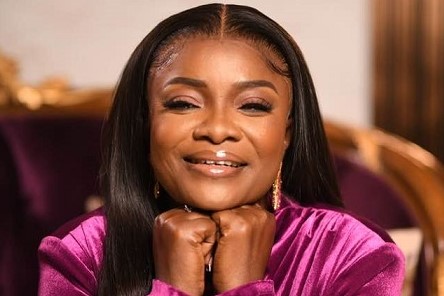Subversive comic book adaptation The Boys truly reveals the ugliness of our obsession with men in capes. So where can the genre go from here, writes Cameron Laux. A
As you watch the new series of Amazon’s darkly comic superhero drama The Boys, you are compelled to reflect on what it means to be a hero and what, if any, meaning it has these days. In The Boys, which is adapted from the mid-2000s comic book series of the same name, the ‘supes’ (heroes with superpowers, all twisted derivatives of classic figures like Superman, Wonder Woman, and Batman, but by other names), far from being shining examples of nobility and courage, are mainly power-drunk self-regarding sociopaths. The ‘boys’ of the title are a gang of weakly human vigilantes who skulk around in the shadows trying to assassinate them.
Comic book adaptation The Boys features a group of ‘supes’ who are mainly power-drunk self-regarding sociopaths (Credit: Amazon)
The boys’ mission is a sort of superhero pest control – anti-heroism in the precise sense. They go about it in a bumbling, extraordinarily gory, madcap fashion. Eric Kripke, the producer/writer/director, translates the comic books into a nastily satirical universe that is reminiscent of Paul Verhoeven’s films Robocop (1987) and Starship Troopers (1997), two films that throw acid on so many Hollywood pieties that it’s a wonder they got made. Here, life isn’t worth much; characters are suddenly turned into red smears, and the plot races on without a backward glance.
Ultimately, the show asks: what do you do when confronted with people who, for pretty good reasons (money, power, both mostly ill-gotten or accidents of fate) have god complexes? This is a topical question in our current moment of the super-rich and populist leaders, but maybe it has always been high on the human agenda. King Lear complained that we are like flies to the gods. Possibly we have always been flies to someone or other powerful. And what a morbid fascination we bugs have with the beings who squash us.
A story as old as time
No matter where you look geographically, or when you look historically, it seems that people have always been obsessed with heroes and gods. Choose any ancient body of folklore – Beowulf, the Mahabharata, the story of Gilgamesh, the legends of the Monkey King, the Icelandic sagas, the Greek epics, the Bible, Shintoism – and you find intrepid heroes struggling with the aid of, or despite, gods. The hero is often on a quest to accomplish something everyone knows to be humanly impossible, and when he shocks everyone by succeeding, he is rewarded with great wealth, status, maybe even a measure of divinity himself.
In recent years these pipe dreams of personal liberation and power have spread like a contagion through the global cultural imagination
If you want a scholarly dissection of our hero obsession, you need only pick up some classics of cultural anthropology. Chief among them is Joseph Campbell’s famous The Hero with a Thousand Faces (1949). It argues that the hero myths of many cultures have a common structure: the hero leaves his everyday world to pursue an adventure that involves stages of conflict and transformation, rites of passage, at the end of which he is forever changed and perhaps somehow transcendent. This doctrine of voyage, struggle, and transformation may seem very familiar: in our age it has become a sort of textbook for script writers everywhere.
George Lucas acknowledged the influence of Campbell on the creation of his (I would say) laughably simplistic Star Wars plots, driven by pantomime good and evil, which centred on an innocent farm boy being sucked into far-flung galactic adventures in the course of which he realised he had god-like powers and was destined to save the universe. In recent years these pipe dreams of personal liberation and power have spread like a contagion through the global cultural imagination. Right now, almost anything involving fantasy elements, no matter what the medium (comics, novels, children’s books, film, TV, the vast spectrum of tie-in merchandise), involves a protagonist battling against adversity to realise their hidden powers, the full expression of their magnificent selves. And fantasy can lay claim to being the dominant genre of our age.
George Lucas acknowledged the influence of Joseph Campbell’s famous work The Hero With a Thousand Faces on his original Star Wars plots (Credit: Alamy)
In modern times, comic books and graphic novels have been an obvious lens through which these traditions of heroism and transcendence have been focused. The ‘golden age’ of comics in the US that began around the 1930s gave us, first, heroes that operated on their wits, strength, and self-discipline alone (Batman, one of the few these days who isn’t a ‘supe’, is a remnant of this), and then heroes with superpowers: Superman, the Flash, Captain America, and a cavalcade more. They are, for all intents and purposes, vigilantes who use their god-like abilities for the good of mankind and against those who don’t. Similarly in post-war Japan, the manga comic book tradition flourished and globalised very successfully, while dovetailing nicely with the philosophy of American comics.
Through much of their history comic books have been a marginalised art form, the domain of geekery. But in the golden age in the US, comics not only were widely read, but they were a medium that allowed much freedom of thought, and explored the edges of human psychology through genres such as horror. They also broached questions about ethnicity, gender, and sexuality.
However, all of that ended in the 1950s, when comics became the target of cultural scare-mongering which accused them of undermining the family and Americanness. Many went out of business; those that survived agreed to self-censor and uphold ‘American’ ideals of decency and masculinity.
In the era of subscription web TV, a new freedom of expression has seemingly erupted that has paved the way for deeper and darker TV superhero dramas
Thus the comic book industry began churning out one-dimensional muscle-bound male characters who tended to use brute force for ‘good’, while women were pushed into an ornamental role on the sidelines. (Wonder Woman, one of the female heroes surviving from the early years, has always dressed in a way critics have likened to a Playboy bunny, minus the fluffy tail.) What’s more, despite the fact that they were located in a hysterically sexualised masculine mindscape, actual sex almost never happened in these stories.
How a genre became a global phenomenon
The presence of self-censorship in its DNA has made the comic book universe ripe for exploitation across global markets: the fewer sexual hot potatoes, the less inconvenient grit, the easier it is to sell films (say) across cultures and over a large demographic. Thus, for example, you are unlikely to see many gay characters in Marvel Universe (MCU) films, because that might affect its box office take. To be fair, you are unlikely to see any sexuality in those films, for the same reason. Meanwhile Thor, who is the God of Thunder in the comic books, is downgraded to ‘Asgardian’ in the MCU films, presumably to avoid offending anyone’s religious sensibilities.
In recent decades the comic book has branched into a more mature art form: the graphic novel. These tackle any subject freely, without concern about ruffling feathers. An influential example of this deeper, darker kind of comic is Watchmen (1986–7), by Moore, Gibbons, and Higgins.
HBO’s Watchmen is one of the deeper and darker dramas that has questioned the very concept of superheroes (Credit: HBO)
By the same token, while TV was once under the control of terrestrial networks who were beholden to both advertisers and geographical vagaries of morality, and thus ended up self-bowdlerising, in the era of subscription web TV a new freedom of expression has seemingly erupted. That in turn has paved the way for deeper and darker TV superhero dramas, like The Boys and the critically adored HBO Watchmen series, from Lost creator Damon Lindelof, which is up for 26 Emmys at this month’s awards. Lindelof’s series is something of a deliberate farrago (his style is to proceed by indirection), but one of the themes that comes through loudly is the nature of justice, and what it means to try to be a hero and take it into your own hands. The results are very ambiguous.
These more sceptical works are still rare, however, amid the glut of superhero-worshipping schlock. It’s not hard to see why we are saturated in comic book adaptations. They are a goldmine of things the TV and film industries want: readymade heroes; strong, readymade storylines; escapism galore; and big back catalogues that can be plundered. If there is one thing executives can be sure of, there is a market for stories of heroes and gods – the same one there has always been. The template is ancient and universal, which means they scream ‘global market’. And they take place in a fantasy universe, which means anything awkward in a particular political jurisdiction can be tailored out. Whereas real-world ‘heroes’ (let’s say Martin Luther King, Emmeline Pankhurst, or Gandhi) may come with political baggage, Superman and Wonder Woman don’t.
Comic book and graphic novel adaptations are becoming an exploitation genre, and what’s being ruthlessly tapped into is our desire to have heroes to look up to.
I am a card-carrying comic book geek from a long way back, and even I am starting to find the present wall-to-wall prevalence of superheroics in TV and film tiresome. Comic book and graphic novel adaptations are becoming an exploitation genre, and what’s being ruthlessly tapped into is our desire to have heroes to look up to. The ancient cultural phenomenon of heroics is being subtly subverted by media corporations and presented to us as ‘self-realisation’, the triumph of the ego, a perfect message for the age of consumer narcissism. Tony Stark, or Iron Man, in the MCU is the quintessence of this point: a swaggering, super-rich industrialist playboy who is madly in love with himself and who engages in heroics for kicks. We are meant to look up to him? And this buffoon is placed in charge of the Avengers, a team of superheroes who are the Earth’s main bulwark against the forces of galactic evil?
Exploding the superhero myth
The viciously sardonic tone of The Boys hits plenty of these nerves. The superheroes for the most part have too much power, are emotionally underdeveloped, and forever stepping on mortals. Homelander, the Superman pastiche and leader of ‘the Seven’, a group of heroes suggestive of the Avengers (or a pantheon of gods), is a vain man-child with blond highlights who radiates petulant menace. Queen Maeve (Wonder Woman) shows rudimentary signs of having a conscience, but keeps them hidden because she is scared of Homelander, by whom it seems she has a history of abuse. The Deep (Aquaman) has model good looks, is stupid, insecure, and emotionally dysfunctional, and uses his public profile to sexually assault women. Black Noir (Batman) hides behind his creepy mask, and hardly speaks. And so on.
The Boys features a female superhero Starlight (right) who is forced into creating a ‘sexy’ public brand (Credit: Amazon)
The Seven, who fight crime and ‘terrorism’, are employees of a mega-corporation called Vought International which ostensibly deals in pharmaceuticals but has more tentacles than anyone can count. The heroes’ murderous glitches (such as the many people killed carelessly in collateral damage) are covered up by Vought’s powerful PR department, which in turn demands the Seven toe a public line that presents them as shining examples of altruism. In the second episode of the new series, one superhero actually says to another, “Life isn’t a PR strategy”, but she doesn’t mean it. As in any other 21st-century business, the PR tail wags the dog. The ‘optics’ are all that matter. And Vought’s stock prices, of course.
At one point in the first series a naive new hero, Starlight (a name that knowingly alludes to the princessy heroines of children’s animation) joins the Seven. The Vought PR department gives her a cynical superhero costume to wear that looks like a pole-dancing outfit. She is horrified and refuses to wear it; they threaten her, she backs down, and the costume becomes an important part of her ‘sexy’ public brand. Her humiliation is complete; and yet the seeds of rebellion are sown.
The point being, I think, that hero narratives have become just another way for corporations to get their sinister hands on our unconscious and turn it against us for profit. It is meta-ironic that The Boys was commissioned by the mega-corporation Amazon. Could it be that they believe their own hype so much that they don’t recognise themselves in this picture? Or maybe they just don’t care.
Do superheroes have a future in our dystopian age? Alan Moore was rumoured to have been displeased with Lindelof for daring to tinker with the Watchmen universe, probably fearing that his graphic novel would be debased and commodified. Yet the Watchmen series, like The Boys, is compelling because it admits that there is something ugly in heroism. The Boys subverts Campbell’s epic plot points at every turn, exposing superheroism as a shiny marketing concept with no relation to human reality. It’s time it made way for some fallible 21st Century heroism, perhaps.
source: Cameron Laux
BBC








